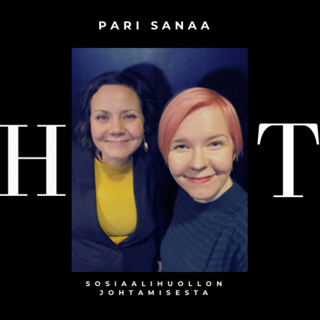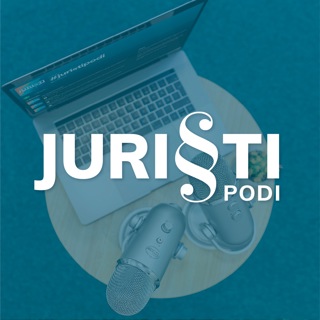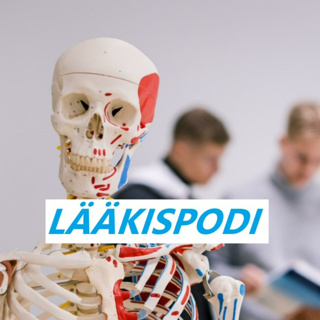
#122: Joel Baker on exploring the capabilities and limitations of ChatGPT: Tips and Tricks
Are you feeling left behind, questioning if your traditional methods are outdated in this era of AI tools? Do you grapple with ethical concerns when utilizing ChatGPT for specific tasks, feeling a sense of cheating? Or do you proudly embrace ChatGPT as your go-to solution for all your needs? Tina Persson and Joel Baker explore the importance of striking a balance between these approaches and bring together their insightful perspectives on these thought-provoking topics. Joel Baker is an English coach from World English Coaches. His personal journey of learning Spanish ignited a passion within him to assist others in achieving their goal of fluent English communication. Joel specializes in coaching leaders and executives and through his coaching, he has successfully guided and supported over 500 individuals in achieving their goal of fluent English communication. In this episode, Tina and Joel discuss how you can make use of ChatGPT for your needs but with certain limitations. They also dive into the do's and don'ts of incorporating ChatGPT into your application journey, emphasizing the importance of maintaining a human touch throughout the process. Last but not least, they emphasize the significance of staying up-to-date with the latest trends, while also cautioning against excessive reliance on AI tools that may hinder your personal growth. Get ready to ignite your curiosity and delve into an exciting episode that explores the burning questions surrounding the integration of AI tools like ChatGPT into our lives. Stay tuned! For the transcript, please click here: https://phdcareerstories.com/pub/jbaker PhD Career Stories is on all major Social Media channels. To receive more content regularly, follow us on YouTube, LinkedIn, Instagram, Facebook, and our website.
12 Touko 202336min

#121: Interview with Bryan Quoc Le on stepping beyond one's comfort zone
Have you ever stepped out of your comfort zone and excelled in something that you thought was not your cup of tea? This is one of the topics out of many that Tina Persson and Bryan Quoc Le share with us in this episode. Bryan Quoc Le is a food scientist, food industry consultant, and author of 150 Food Science Questions Answered. He earned his PhD in 2020, in the middle of the Covid-19 pandemic, and ended up starting and growing a food consulting business shortly thereafter. Bryan has been working with well-established companies in the food industry such as Blue Diamond Growers, The Good Food Institute, TurtleTree, Black Sheep Foods, and many others. In this episode, Tina and Bryan talk about how adversities in life change our paths, and how Bryan with his can-do attitude "made lemonade" when life provided him with lemons. They talk about curiosity, resilience and much more. Listen to this episode and get inspired by Bryan's journey. For the transcript, please click here: https://phdcareerstories.com/pub/qle PhD Career Stories is on all major Social Media channels. To receive more content regularly, follow us on YouTube, LinkedIn, Instagram, Facebook, and our website.
14 Huhti 202335min

#120: Interview with Thalyana Stathis on pursuing a postdoc career in the USA
Are you looking forward to pursuing a postdoc career in the USA? Are you living in Europe, but dreaming of a long-term career in the USA? Are you looking forward to pursuing a postdoc career in the USA? Then this is an excellent episode for you as Tina Persson and Thalyana Stathis extensively discuss the application strategies for a postdoc position in the USA. Thalyana Stathis is the Associate Director of the Office of Career and Professional Development for postdocs and PhD students at Memorial Sloan Kettering Cancer Center (MSKCC) in NYC. As a career advisor, she supports hundreds of students and postdocs in each stage of their career planning. She also directs workshops for career exploration and navigating the job market for all academic and non-academic career paths. Tina and Thalyana talk about the common mistakes that many PhDs do when applying for a postdoc application. One of the great tips from Thalyana is about how to use your current network to reach out to your future research lab/company. Thalyana also provides many tips regarding the different visa options. If you have any questions about how to apply to postdoc positions at MSK, how to contact faculty members you are interested in working with, or how to learn more information about different labs at MSK, please feel free to email Thalyana Stathis at stathist [at] mskcc.org or connect with her on LinkedIn (https://www.linkedin.com/in/thalyanasmithvikos/). Listen to this episode to know more about this in detail. For the transcript, please click here: https://phdcareerstories.com/pub/tstathis PhD Career Stories is on all major Social Media channels. To receive more content regularly, follow us on YouTube, LinkedIn, Instagram, Facebook, and our website.
10 Maalis 202343min

#119: Interview with Sajni Haria on transitioning from a PhD in Chemistry to a Business Development Manager
During your PhD, have you ever thought if the world actually needs your research? Would people want to use your product? In this episode, Tina Persson and Sajni Haria discuss the entrepreneurial mindset that PhDs can train themselves with if they start thinking of the bigger picture of commercialising their research. Sajni also reminds us of how PhDs do not just have an academic skill set but also a vast set of transferable skills that can help them translate their research. Sajni holds a PhD in Chemistry from the University of Birmingham and currently is a Business Development Manager at the National Institute of Health and Care Research. She supports the Life Science industry to navigate the UK's clinical research ecosystem whilst providing her business acumen. Sajni also talks about how she transitioned from a doctoral researcher to a Business Development Manager where she helps to push research technologies forward, and finds opportunities for implementing these technologies in the real-world setting by fostering collaborations, thereby improving the quality of life of patients. Listen to this episode to know more about Sajni's insights. For the transcript, please click here: https://phdcareerstories.com/pub/sharia PhD Career Stories is on all major Social Media channels. To receive more content regularly, follow us on YouTube, LinkedIn, Instagram, Facebook, and our website.
10 Helmi 202329min

#118: Interview with Sara Andersson about the conflict between her PhD interests and her personality
'I really never knew how I felt in the lab, what does it really mean [for me]?... I'm a creative person, I love to meet people [and] I realised that being in the lab can be quite lonely', Sara asked herself during her time as a PhD candidate. In this episode, Tina Persson, the founder of PhD Career Stories, interviews Sara Andersson, who tells us about her PhD journey and how she became a talent advisor at Mpya Sci & Tech. Sara finished her PhD in Pharmaceutical Sciences at Uppsala University where she gained experience as a manager, problem-solver and critical thinker. During her PhD years, she learned in detail about the pharmaceutical industry and she also chaired the doctoral committee which tremendously helped her to understand the skills and the challenges faced by a PhD candidate. In this podcast, Sara also shares how she got her job as a recruiter and how this fits her previous experiences. Since Sara herself has travelled the path of a PhD, she understands the applicant's journey, which allows her to help, advise and recruit graduates in the science and technology fields. Do you want to know more? Listen to this interesting and insightful episode. Enjoy! For the transcript, please click here: https://phdcareerstories.com/pub/sandersson PhD Career Stories is on all major Social Media channels. To receive more content regularly, follow us on YouTube, LinkedIn, Instagram, Facebook, and our website.
13 Tammi 202326min

#117: Interview with Aditya Parekh on can you trust your gut to guide yourself in your career?
"[On average,] one farmer commited suicide every 30 minutes in India", Aditya Parekh remarks as he talks to our host, Tina Persson. This fact is what changed his mind and sparked his interest in changing that reality. He knew he wanted to help them. In this episode, Aditya shares his journey and challenges in the academic transition from Oncology and Molecular Biology to Sustainable Farming in the School of Design at Anant National University, India. Aditya followed his gut when it came to making major career decision after his Postdoc. During his later half of PhD and while pursuing his postdoctoral research, he developed a consuming passion for changing the high number of suicides committed by Indian farmers. Aditya trusted his gut and made a unique transition to Sustainable Farming as an Assistant Professor. His goal is to connect the student community with farmers and sustainable farming practices, to help the farmers with diverse solutions, and to create awareness of their situation. Alongside, he also finds motivation to help young researchers in their career journey, through talks and meetings. If you want to know more about his challenges and this unconventional transition, make sure to listen to this episode! For the transcript, please click here: https://phdcareerstories.com/pub/aparekh PhD Career Stories is on all major Social Media channels. To receive more content regularly, follow us on YouTube, LinkedIn, Instagram, Facebook, and our Website.
8 Joulu 202238min

#116: Interview with Priya Rangan on transitioning from academia while moving out of her comfort zone
In an age of misinformation, it has become essential for science to reach the public audience in a transparent manner. As a graduate in science, have you ever thought of communicating your science with the world? In this episode, Santoshi Devadas talks to Priya Rangan, who tells us everything about her journey to becoming a scientific communications specialist. Priya holds a PhD in Biology of Ageing and has 11 years of experience working in academic research and pharmaceutical settings. She transitioned to science communication because she is passionate about it. Priya wants to translate what scientists are doing in a way which makes sense to people who are completely outside of it. "...I do believe that scientific communication is a field that is going to change a lot of things within academia, within industry …and the general public, [who] I think are the most important of all.", says Priya. At the end of the interview, Priya advised our listeners on the job hunt: Set up your LinkedIn profile as well as you do it for your resume. After meeting people either in person or online, send them a message explaining why you want to connect with them, rather than merely sending them a connection request. Make a connection with them. Prioritise your mental health and know that your life is not just the lab or your job, it's also everything else outside of it. If you want to know more about how Priya aligned her life and career goals, while pursuing her passion, listen to this episode! Enjoy it! For the transcript, please click here: https://phdcareerstories.com/pub/prangan PhD Career Stories is on all major Social Media channels. To receive more content regularly, follow us on YouTube, LinkedIn, Instagram, Facebook, and our Website.
11 Marras 20221h 2min

#115: How did Marisa Pereira develop resilience and self-confidence during her PhD?
Am I fit for a PhD? My experiments are going nowhere. Will I see the end of this PhD? I only have academic experience, how will I find a job in the industry? Have you ever been in these situations? Our guest Marisa Pereira had asked herself these same questions, but today Marisa has successfully completed her PhD and transitioned to the biotech industry as a Project Manager. She also is the co-founder and owner of pic.cell, a unique company that designs textiles inspired by microscopic images. In today's episode, Marisa shares with us the highs and lows of her career path. She addresses how she overcame the snags during her PhD, how she started her brand pic.cell, and how - after 2 years of Postdoc experience - she landed in the biotech industry. Throughout the episode, Marisa shares many tips not just to survive but also to thrive while doing a PhD.Last but not least, Marisa shares a vital piece of advice "....enjoy the journey. PhD is only a part of your life. In the end, what is interesting, is the knowledge that you [gained] as a professional but even most important as a person." If you want to learn more about Marisa's story, listen to this episode now. For the transcript, please click here: https://phdcareerstories.com/pub/mpereira PhD Career Stories is now on major social media channels. To receive more content regularly, follow us on YouTube, LinkedIn, Instagram, Facebook, and our Website.
28 Loka 202220min





















